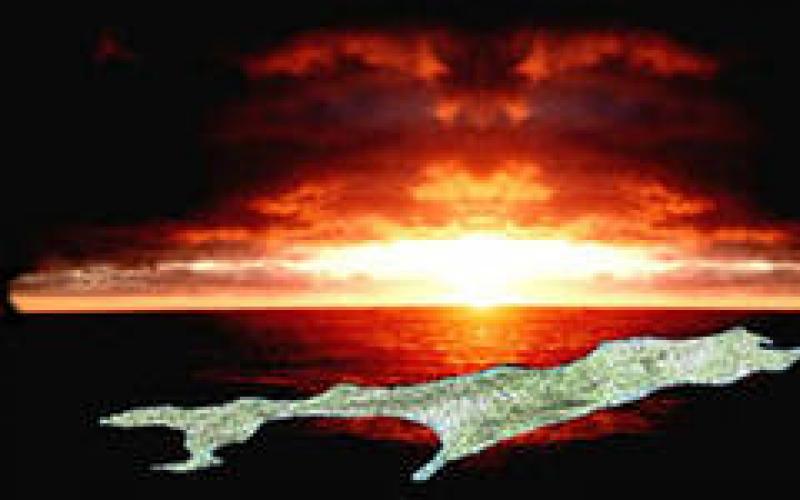Appendix No. 1 (grades 10-11)
List of textbooks for 10th grade in 2013-2014 academic year
|
Items/Classes |
||||
|
10a 10b |
Profile |
|||
|
Languages and Literature |
||||
|
Russian language |
Grekov V.F., Kryuchkov S.E., Cheshko L.A. Russian language (basic level) |
|||
|
Literature |
Belenky G.I., Demidova N.A. Ed. Lyssogo Yu.I. Russian literature of the 19th century. Ch. 1, 2. 10 cells. Mnemosyne. |
economic, legal, |
||
|
English language |
Economic, legal, chemical and biological, physical and mathematical |
|||
|
Maths |
||||
|
Mordkovich A.G. Algebra and the beginnings of mathematical analysis, grades 10-11 (a basic level of) |
||||
|
Mordkovich A.G., Mnemosyne, Algebra and the Beginnings of Analysis. Ch. 1, 2. 10 cells. Part 1 - textbook, Part 2 - problem book., 2009 (profile level) |
||||
|
Geometry |
Atanasyan L.S. , Butuzov V.F. Geometry grade 10-11, Enlightenment publishing house, (a basic level of) |
Economic, legal, chemical and biological, physical and mathematical |
||
|
Informatics and ICT |
Makarov N.V., (a basic level of) |
Economic, legal, chemical and biological, physical and mathematical |
||
|
natural disciplines |
||||
|
Myakishev G.Ya. Physics, Enlightenment, 10th grade, |
Economic, legal, chemical and biological, physical and mathematical |
|||
|
Biology |
(a basic level of) |
|||
|
(profile level) |
Chemical and biological |
|||
|
(profile level, grade 11) |
Chemical and biological |
|||
|
Novoshinsky I.I., Novoshinskaya N.S. Chemistry (basic level, grade 11) |
Economic, legal, physical and mathematical |
|||
|
Geography |
Domogatskikh E.M., Alekseevsky N.I. Geography (basic and profile levels) |
Economic, legal, chemical and biological, physical and mathematical |
||
|
Public disciplines |
||||
|
Ukolova V.I., Revyakin A.V. / Ed. Chubaryan A.O. General history. recent history (basic and profile levels) |
Economic, legal, chemical and biological, physical and mathematical |
|||
|
Sakharov A.N., Bokhanov A.N. History of Russia from ancient times to the end of the nineteenth century. Ch. 1, 2. 10 cells, Russian word, (profile level) |
Economic, legal |
|||
|
Danilov A. A., Kosulina L. G., Brandt M. Yu. (a basic level of) |
Chemical-biological, physical-mathematical |
|||
|
Social science |
Ed. Bogolyubova L.N. etc. Man and society. Social science. Part 1. 10 cells. Education, (a basic level of) |
Chemical-biological, physical-mathematical |
||
|
profile level) |
Economic, legal |
|||
|
(profile level), 2012 |
Legal |
|||
|
Frolov M.P. Litvinov E.N. ed. Vorobyova Yu.L. LIFE SAFETY FUNDAMENTALS, (baseline), 2012 |
Economic, legal, chemical and biological, physical and mathematical |
|||
|
Physical Culture |
Lyakh V.I., Zdanevich A.A. Physical Culture, (baseline), 2013 |
Economic, legal, chemical and biological, physical and mathematical |
||
List of textbooks for grades 11 for the 2013-2014 academic year
|
Items/Classes |
|||
|
11 a, b, c |
Profile |
||
|
Languages and Literature |
|||
|
Russian language |
Grekov V.F., Kryuchkov S.E., Cheshko L.A. Russian language (a basic level of) |
Economic, legal, chemical and biological, physical and mathematical |
|
|
Literature |
Belenky G.I., Demidova N.A. Ed. Lyssogo Yu.I. Russian literature of the 19th century. Ch. 1, 2. 11 cells. Mnemosyne. |
Economic, legal, chemical and biological, physical and mathematical |
|
|
English language |
Biboletova M.Z., publishing house Title |
Economic, legal, chemical and biological, physical and mathematical |
|
|
Maths |
|||
|
Mordkovich A.G., Mnemozina, Ch1 - textbook, Ch 2 - problem book., 2009 Algebra and the beginnings of analysis. Ch. 1, 2. 11 cells. (profile level) |
Economic, physical and mathematical |
||
|
Mordkovich A.G. Algebra and the beginnings of mathematical analysis, grades 10-11, (a basic level of) |
Legal, chemical and biological |
||
|
Geometry |
Atanasyan L.S. , Butuzov V.F. Geometry grade 10-11, Enlightenment, 2010 |
Economic, legal, chemical and biological, physical and mathematical |
|
|
Informatics and ICT |
Makarov N.V. |
Economic, legal, chemical and biological, physical and mathematical |
|
|
natural disciplines |
|||
|
Myakishev G.Ya. Physics, Education, grade 10, (basic and profile levels), 2009 |
Economic, legal, chemical and biological, physical and mathematical |
||
|
Biology |
Belyaev D.K., Borodin P.M., Vorontsov N.N. and others / Ed. Belyaeva D.K., Dymshitsa G.M. General biology. 10-11 cells. (Publishing House of Enlightenment), (a basic level of) |
Economic, legal, physical and mathematical |
|
|
Borodin P.M., Vysotskaya L.V., Dymshits G.M. etc. Biology 10-11 in 2 parts, (profile level) |
Chemical and biological |
||
|
Novoshinsky I.I., Novoshinskaya N.S. Chemistry (profile level, grade 10) |
Chemical and biological |
||
|
Novoshinsky I.I., Novoshinskaya N.S. Chemistry (basic level, grade 10) |
Economic, legal, physical and mathematical |
||
|
Geography |
Domogatskikh E.M., Alekseevsky N.I. Geography (basic and profile levels) |
Economic, legal, chemical and biological, physical and mathematical |
|
|
Public disciplines |
|||
|
Ulunyan A.A., Sergeev E.Yu. / Ed. Chubaryan A.O. General history. Recent history (basic and profile levels) |
Economic, legal, chemical and biological, physical and mathematical |
||
|
Shestakov V.A. Under the editorship of Sakharov A.N. History of Russia (profile level), 2012, Enlightenment |
Economic, legal, chemical and biological, physical and mathematical |
||
|
Social science |
Ed. Bogolyubova L.N. etc. Man and society. Social science. Part 2. 11kl., Enlightenment, (a basic level of) |
Chemical-biological, physical-mathematical |
|
|
Ed. Lazebnikova A.Yu. L.N. etc. Social science. Grade 10, Enlightenment, ( profile level) |
Economic, legal |
||
|
Bogolyubova L.N., Lukasheva E.A., Ed. Bogolyubova L.N. etc. Law (profile level) |
Legal |
||
|
Frolov M.P. Litvinov E.N. ed. Vorobyova Yu.L. OBZH (Basic level) |
Economic, legal, chemical and biological, physical and mathematical |
||
|
Physical Culture |
Lyakh V.I., Zdanevich A.A. Physical culture (basic level) |
Economic, legal, chemical and biological, physical and mathematical |
|
Features of studying subjects in grades 10-11:
1. Basic general education subjects - academic subjects federal component, aimed at completing the general educational training students, studied in full for two years of study:
Russian language 70(1/1)
Literature 210(3/3);
Foreign language 210(3/3);
Mathematics 280(4/4);
Informatics and ICT 70 (1/1) - the subject is studied within the framework of the 1998 standard in order to ensure minimal information training for high school students and due to the fact that this subject was not studied at the second level of education;
History 140(2/2);
Social Studies (including Economics and Law) 140(2/2);
Geography 70(1/1) - to complete general education
geographical training of high school students.
The subject of natural science is studied by independent modules:
Physics 140(2/2); chemistry 70(1/1) ; biology 70(1/1);
MHK 70(1/1);
Technology 70(1/1);
Physical culture 140(2/2);
OBZH 70(1/1)
When conducting classes in "Foreign language (specify which one?)", classes are divided into two groups.
Study loadbase component items is
2.Regional component:
The following subjects are included in the regional component:
History of Siberia 35(1) in 11th grade;
- "Third hour of physical culture" - 36(1) in 10th grade;
- “Professional career technology.
Effective behavior in the labor market” 70 (1/1) for two years of study in grades 10 and 11.
The volume of the teaching load of the subjects of the regional component is 140 (2/2) hours for two years of study.
3. The educational institution component is 560(8/8) hours for two years of study. These hours are distributed:
a) to enhance the items of the base component:
geometry - 70 (1/1) for two years of study in grades 10 and 11;
computer science - 140 (2/2) for two years of study in grades 10 and 11;
b) on elective courses in order to prepare students for the exam:
Russian language - 210 (1.1 / 1.5) for two years of study in grades 10 and 11;
mathematics - 210 (1.1 / 1.5) for two years of study in grades 10 and 11;
biology - 70 (1/1) for two years of study in grades 10 and 11.
c) to satisfy individual educational needs students…………….
d) for research activities………………………….
e) for project activities……………………………………
(you can use the hours allotted for elective subjects to organize specialized training in individual subjects of the federal component)
The maximum allowable study load for a 6-day academic week does not exceed 2520 (36/36) hours for two years of study.
Conditions for the implementation of this curriculum:
studied in an educational institution: FBUP (dated 09.03.04 No.
1312), the federal component of state educational
standards of general education (dated 05.03.04 No. 1089),
exemplary programs developed on their basis, methodological
2007 academic year. (This work should be carried out on
pedagogical council schools and approved by order
director)
Designed academic plan for 10th, 11th grades, taking into account the FBUP (dated 09.03.04 No. 1312), the federal component of the state educational standards of the first generation (dated 05.03.04 No. 1089), RBUP.
Work programs have been developed in the subjects of the federal component, taking into account the standards of the first generation (dated 05.03.04 No. 1089) (at the basic and profile levels).
Work programs have been developed for the subjects of the regional component and the component of the educational institution.
There are textbooks for all students that ensure the implementation of the federal component of state educational standards (dated 05.03.04 No. 1089) on basic and profile levels. There is additional literature for the teacher and the student, which ensures the implementation of programs in specialized subjects.
There are teachers who can ensure the implementation of the standard average (full) generaleducation at the basic and specialized levels.
There is a material base that ensures the implementation of the practical part of the programs within the framework of the first generation standards (dated 05.03.04 No. 1089) at the basic and professional levels.
Provided pre-profile training for ninth grade students.
There is a decision of the pedagogical council on the introduction of the federal component of state educational standards based on an in-depth analysis of the conditions of the educational institution (legal, personnel, material and technical, educational and methodological); the results of the state (final) certification for the course of the basic school, the results of the implementation of programs in the subjects of pre-profile training.
Students, their parents (other legal representatives) are familiar with the conditions of schoolchildren's education within the framework of the first generation standards.
The curriculum is agreed with the founder.
5. Calendar-annual schedule for 2009-2010 academic year
End of the school year in grade 10 ____________ 2010
Quarter 1 from _______ to _______ number of students weeks _______
Quarter 2 from _______ to _______ number of students weeks _______
holidays from ______ to _______ number of days ____________
Quarter 3 from _______ to _______ number of students weeks _______
holidays from ______ to _______ number of days ____________
Quarter 4 from _______ to _______ number of students. weeks _______
Intermediate certification ___________________________
Total weeks in 10th grade_______ in 11th grade_______
Total vacation days______
This PUE was approved at a meeting of the Pedagogical Council
Minutes dated May 13, 2009 No. 4; Order dated _________ 2009 No. ______
Students and their parents (legal representatives) are familiar with this PMM, the conditions for teaching students within the framework of the first generation standards Protocol parent meeting dated 06.05.2009 No._3
Director of the MOU SOSH (OOSH) _______________ (signature)
Approved Approved
AND ABOUT. Chapters At the pedagogical council of the MOU "Secondary
Iskitimsky district secondary school with. Old
V.D. Churkin Iskitim” Protocol No. 4 dated May 13, 2009
"____" ___________ 2009 Director's order No. 19/2 dated May 14, 2009
E.A. Glazyrina
Curriculum for the 3rd stage of education (professional education)
MOU "Secondary school with. Old Iskitim»
2009 -2010 academic year
Physical - mathematical profile.
Federal component |
|||
Compulsory subjects at the basic level |
|||
Academic subjects | Grade 10 2008-2009 academic year year | Grade 11 2009-2010 academic year year. | Number of hours for 2 years of study |
Russian language | 70 (1/1) |
||
Literature | 210 (3/3) |
||
Foreign language (English) | 210 (3/3) |
||
Story | 140 (2/2) |
||
Social studies (including economics and law) | 140 (2/2) |
||
Biology | 70 (1/1) |
||
Chemistry | 70 (1/1) |
||
Geography | 70 (2/-) |
||
Informatics ICT | 70 (1/1) |
||
Physical Culture | 140 (2/2) |
||
70 (1/1) |
|||
Total | 682 (19) | 578 (17) | 1260 (19/17) |
Elective subjects at the profile level. |
|||
Maths | 420 (6/6) |
||
Physics | 350 (5/5) |
||
Total | 396 (11) | 374 (11) | 770 (11/11) |
Total FC | 1078 (30) | 952 (28) | 2030 (29/27) |
Regional component |
|||
History of Siberia | 35 (-/1) |
||
Physical Culture | 36 (1/-) |
||
Career Technology | 70 (1/1) |
||
Total | 141 (2/2) |
||
Educational Institution Component |
|||
"Preparation for the exam in the Russian language" | 54 (1,5) | 51 (1,5) | 105 (1,5/1,5) |
"Preparation for the exam in mathematics" | 69 (-/2) |
||
Biology: preparation for the exam | 18 (0,5) | 17 (0,5) | 35 (0,5/0,5) |
Informatics ICT | 140 (2/2) |
||
Total | 349 (4/6) |
||
Total | 1294 (36) | 1226 (36) | 2520 (36*36) |
Explanatory note to the working curriculum for grades 10-11
MOU "Secondary School with. Old Iskitim" for the 2009 - 2010 academic year.
(physical - mathematical profile).
This RUE for the 2008-09 academic year for grades 10-11 implements the first generation standard, developed on the basis of:
Order of the Ministry of Defense of the Russian Federation of 09.03.04 No. 1312 "On approval of the federal basic curriculum and exemplary curricula for educational institutions Russian Federation implementing programs of general education”;
Regional Basic Curriculum for General Educational Institutions of the Novosibirsk Region Implementing the First Generation Standard for the 3rd Stage of Education, approved by Order of the Department of Education of the Novosibirsk Region No. 533 dated May 17, 2006 "On Approval of the Basic Curriculum for General Educational Institutions of the Novosibirsk Region for the 2006-07 Academic Year", which implements the standards of the first generations at the 3rd level of education;
Order of the Ministry of Defense of the Russian Federation dated 05.03.04. No. 1089 "On approval of the federal component state standard education”;
Sanitary and Epidemiological Rules and Regulations “Hygienic Requirements for the Conditions of Studying Schoolchildren in General Educational Institutions. SanPin 2.4.2.1178-02, approved by the Chief Sanitary Doctor of the Russian Federation on November 25, 2002, registered with the Ministry of Justice of the Russian Federation on December 5, 2002 No. 3997.
Order of the Department of Education of the Novosibirsk Region No. 958 dated October 8, 2008 "On Amendments to the Federal Basic Curriculum and the Exemplary Regional Basic Curriculum"
The purpose of the educational program of the educational institution at the third stage of education:
-- the formation of a socially literate and socially mobile personality, aware of their rights and obligations, clearly aware of the potential opportunities, resources and ways of implementing the chosen life path.
This curriculum is focused on a 2-year standard period for mastering educational programs of secondary (complete) general education, for 70 academic weeks for two years of study. In the 10th grade, the duration of the academic year is 36 academic weeks, in the 11th grade - 34 academic weeks. The mode of operation is a six-day school week. The duration of the lesson is 40 minutes.
Basic general education objects - objects federal component,
aimed at completing the educational preparation of students. Mandatory
the basic general education subjects are: "Russian language", "Literature", "English language", "History", "Social science" (including economics and law), "Physical culture", "Natural science". In accordance with the chosen profile, the subjects of geography, informatics and ICT are introduced into the basic component.
Geography is studied in the 10th grade in the amount of 70 (2/-) hours per year, geography is introduced in order to complete geographical education. The content of the course "Geography of the Novosibirsk Region" is implemented in the basic subject "Geography" (without allocating additional hours).
Informatics and ICT are studied in grades 10 and 11 in the amount of 70 (1/1) hours (1999 standard).
The course "Social Studies" (including economics and law) is being studied in the amount of 140 (2/2) hours for 2 years of study at the basic level as an academic subject.
The subjects of the integrated course "Natural Science" are studied as independent subjects: "Biology" - 70 (1/1) hours for 2 years, "Chemistry" - 70 (1/1) hours for 2 years, "Physics" is studied at the profile level .
The cumulative time of the basic component for two years of study is 1190 (18/16) hours.
Profile general education subjects: mathematics - 420 (6/6) hours in 2 years, physics - 350 (5/5) hours in 2 years. These are high-level subjects that determine the specialization of this physical and mathematical profile of education. They are aimed at providing students with not only the opportunity to enter any higher educational institution specialty requiring high level knowledge of mathematics and physics, but also to create conditions for successful education in the relevant university.







